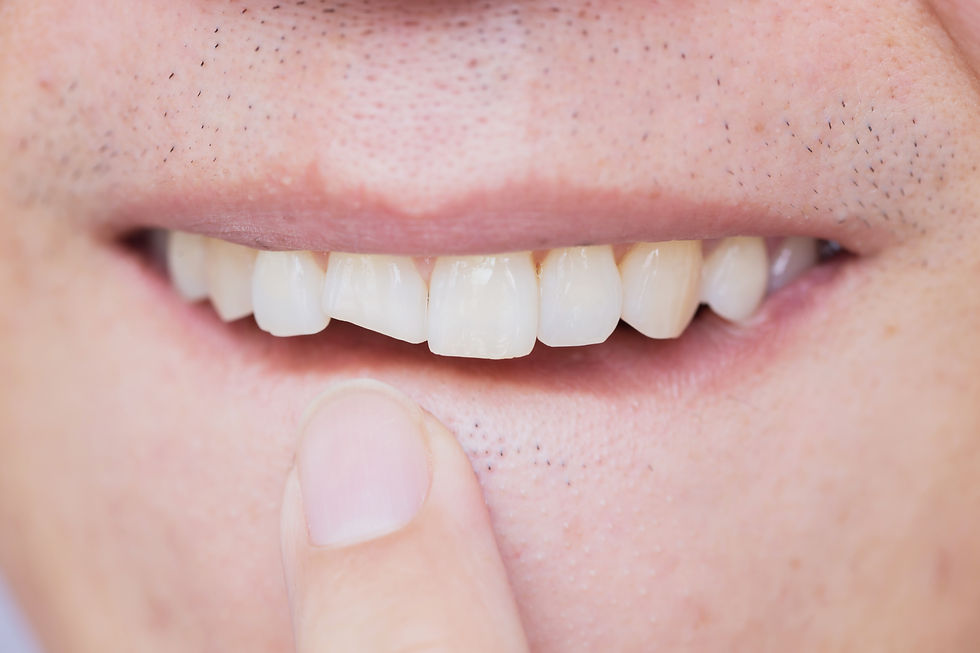What to Do in a Dental Emergency: A Quick-Action Survival Guide From Pflugerville, TX Dentist
- K Family Dentistry

- Jul 22, 2025
- 3 min read
Updated: Aug 7, 2025

Dental emergencies can strike when you least expect them—whether it’s a sudden toothache, a knocked-out tooth, or a broken crown. Knowing how to respond quickly can mean the difference between saving and losing a tooth. We’re here to help you prepare for the unexpected with this quick guide to common dental emergencies and what you should do if one happens.
What Is a Dental Emergency?
A dental emergency is any situation involving your teeth, gums, or mouth that requires immediate attention to relieve pain, stop bleeding, save a tooth, or prevent a serious infection. Some dental issues can wait a day or two—but others need treatment as soon as possible.
Common Dental Emergencies and How to Handle Them

1. Toothache
Persistent, throbbing tooth pain could indicate an infection, abscess, or severe decay.
What to do:
Rinse your mouth with warm water.
Use dental floss to ensure nothing is stuck between your teeth.
Take over-the-counter pain relievers (never place aspirin directly on gums).
Contact your dentist immediately for an evaluation.
2. Knocked-Out Tooth
A knocked-out (avulsed) tooth is one of the most urgent dental emergencies.
What to do:
Pick up the tooth by the crown (not the root).
Rinse it gently if dirty—do not scrub.
Try to place it back in the socket, or store it in milk or a tooth-preservation solution.
Get to your dentist or an emergency room within 30–60 minutes for the best chance of saving the tooth.

3. Broken or Chipped Tooth
A broken tooth can be painful and may expose sensitive nerves.
What to do:
Rinse your mouth with warm water.
Apply a cold compress to reduce swelling.
Save any broken pieces and bring them to your appointment.
See your dentist as soon as possible.
4. Lost Filling or Crown
A missing filling or crown can leave the tooth vulnerable to damage or infection.
What to do:
If possible, keep the crown and bring it with you.
Apply dental cement (available at pharmacies) as a temporary fix.
Avoid chewing on that side of your mouth.
Call your dentist to schedule a repair.

5. Abscess or Swelling
An abscess is a serious infection that can spread quickly if untreated.
What to do:
Rinse with warm salt water to ease discomfort and draw out infection.
Do not pop or drain the abscess yourself.
Seek immediate dental or medical care—this can be life-threatening if ignored.
When to Go to the ER vs. the Dentist
Go to the emergency room if:
You have uncontrollable bleeding.
You have swelling that’s making it hard to breathe or swallow.
You’ve sustained a serious injury to your jaw or face.
See your dentist immediately for:
Severe toothache or swelling.
Knocked-out or broken teeth.
Lost fillings or crowns.
Damaged braces or dental devices.

How to Prevent Dental Emergencies
While not all emergencies are avoidable, some steps can reduce your risk:
Wear a mouthguard during sports.
Avoid chewing ice, hard candy, or popcorn kernels.
Maintain regular dental check-ups.
Don’t use your teeth to open bottles or packages.
Treat dental pain early before it worsens.
We're Here When You Need Us Most
If you’re experiencing a dental emergency, give us a call. Your smile can’t wait—and neither should you.
#dentalemergency #toothachehelp #knockedouttooth #toothinjury #emergencydentist #oralhealth #oralhealthtips #dentalcare #toothpainrelief #abscess #brokentooth #lostcrown #dentalfirstaid #smilesave #protectyoursmile #dentaltips #restorativedentistry #dentalwellness #pflugervilletx #pflugervilletexas #pflugervilletxdentist #kfamilydentistry


